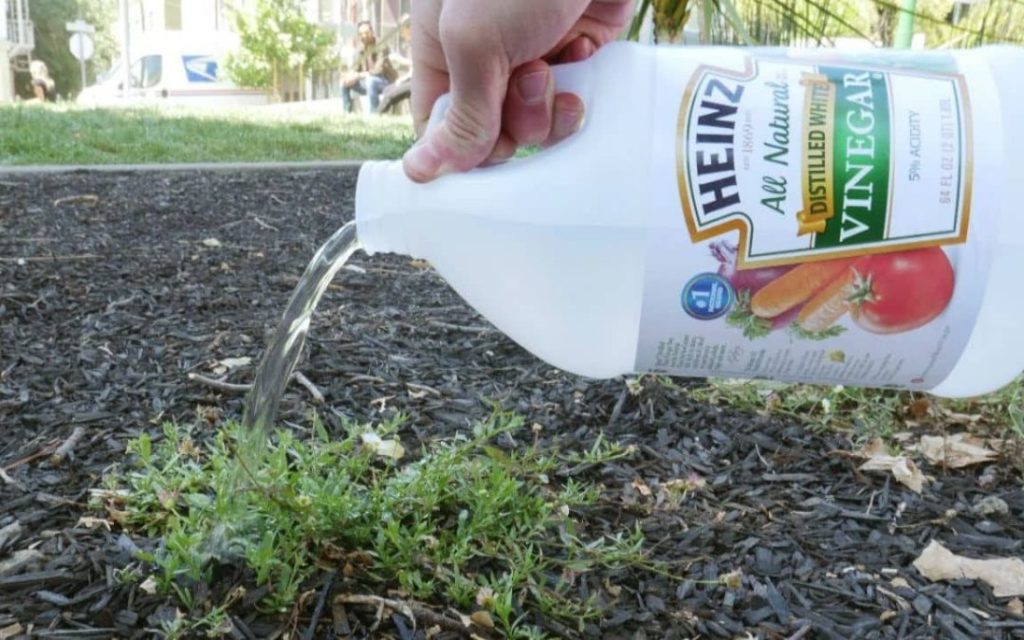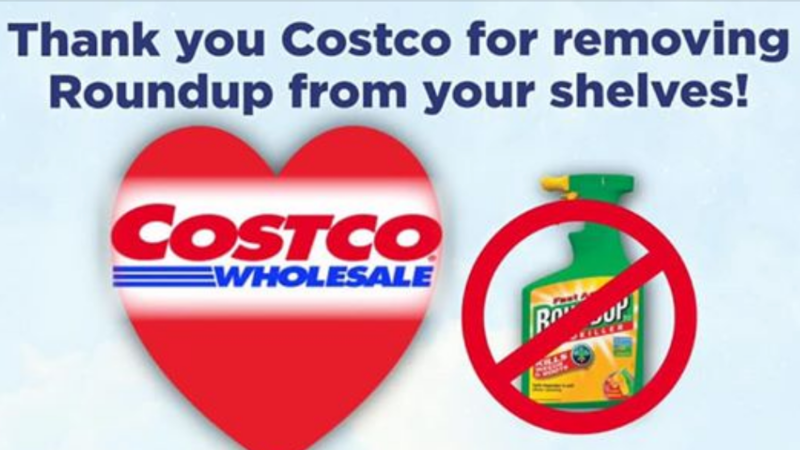Part 4 – What We Can Do
As of the writing of this post, Bayer is facing cancer lawsuits from more than 13,400 plaintiffs in the United States. Punitive damages were just awarded (and slashed) in the third Roundup cancer case to go to trial. Bayer is appealing the decision, maintaining that “the verdict and damage awards are not supported by the evidence at trial and conflict with the extensive body of reliable science and conclusions of leading health regulators worldwide that confirms glyphosate-based herbicides can be used safely and the glyphosate is not carcinogenic.” On the other hand, the California Superior Court judge stated that there was “clear and convincing evidence that Monsanto made efforts to impede, discourage, or distort scientific inquiry and the resulting science.”[1]
Hundreds of scientific studies will tell you one thing or the opposite. If you want support for your argument, all you need is Google.
Say you’re adamantly opposed to the use of Roundup. What are your options?
There are some simple steps you can take: you could stop buying Roundup, sign petitions for it to be taken off the market, buy only organic foods and/or stop buying food made with Roundup-ready crops, and demand that Bayer take responsibility for the thousands of people who have likely been harmed through continuous contact with the chemical for decades, to name a few.
I will list some alternatives for eco-friendly herbicides and suggestions on how to get involved below, but first, we need to have a difficult conversation…

Unpopular Opinion Time
I have no doubt that many of you clicked on this link to have your opinions about RoundUp supported (either one way or another). Social media and internet-based arguments seem to be increasingly simplified, with camps becoming more polarized, but that is not representative of reality. I know how unsatisfying it is to hear “it’s complicated” rather than a straightforward answer in either direction, but this topic (like many) is full of subtleties. If it were an issue of simple right/wrong, there would be no argument, but there are a lot of factors at play here, not only “evil corporation” vs. “unsuspecting consumers.”
Every decision you make has positive and negative impacts, like ripples in a pond. What I hoped to learn through researching and writing this series was what my personal impacts are in the grand scheme of the Roundup drama, and yes: there will likely be benefits to taking it off the market. It is possible that stopping the use of glyphosate at your home and in agricultural settings may reduce cancer rates among farm laborers, reduce physical and mental health complications from negative impacts on gut bacteria, and reduce dangers for an already at-risk bee population.
However, we cannot talk about the positive impacts of getting rid of glyphosate without understanding the potential negative side effects of taking it off the market entirely and immediately…
- We could easily see lower crop yields as weeds compete with our food for nutrients, lowering supply and harming areas prone to famine:
“Applying glyphosate before the new crop is planted generally brings up to 30% higher harvests for many of Europe’s major crops.” - Roundup-ready crops don’t require tilling; regular crops do – there’s added labor and resources required to do that extra work, which will result in a price increase, and price hikes will impact low-income families the most:
“Conventional plough tillage is an energy-intensive process.” - Tilling fields can also lead to a greater carbon footprint, since farm machinery burns gasoline and tilling releases CO2 from the soil – there you’ve got higher temperatures and more unpredictable weather patterns as climate change is exacerbated:
“If farmers are forced to fall back on these weed-control methods, CO2 emissions and fossil fuel consumption of German agriculture are for instance predicted to more than double.”[3]
I try to remind myself of my own biases, and while I can easily choose to buy organics over conventional food, many people do not have that luxury. The ability to make choices related to sustainability on a personal level very often comes down to affordability. Many people cannot afford to “be sustainable,” and it is those people who will be harmed by price increases of food.
Food choices are impacted by affordability and distribution. It’s a conversation for another time (and a whole different blog series), but many supporters of GMOs argue that genetically-modified foods are the best (or only?) way to affordably and effectively feed our current global population.
It is not an expert assessment, but from what I have read, it would appear that our agricultural system has developed a dependency on glyphosate over the last 20 years and likely could not support the global demand for food without it. Getting rid of glyphosate in one motion could likely be as harmful as continuing to use it. Unfortunately, I don’t have any answers – just this platform to remind people to consider the weight of their decisions before they move forward.
If you believe that glyphosate is dangerous – either because you always have or now because of what you’ve read here over the last several posts – here are some alternatives for you to consider at home and some options for getting involved.

Alternatives for personal use
Your Green Pal[5], the original site I referenced when writing my heated Facebook post last summer lists a number of alternatives to Roundup that should help take care of your weeds without any of the risks of this commonly-used chemical:
- Orange oil – Mix half a cup of orange oil with one quart of water and spray directly on weeds. Spray on a sunny day to maximize the weed killing potential.
- Vinegar oil – Commercial strength vinegar can kill your weeds and is also biodegradable. It is far less toxic than commercial formulas, but make sure you only spot treat because this can kill grass as well.
- EcoSmart products – These products rely on food grade plant oils, like clove oil, to kill weeds. None of the ingredients are considered toxic to humans.
Other options from Gaia’s Organic Gardens[6] include:
- Hot/boiling water
- Pelargonic acid – commercially available as an eco-friendly weed killer
- This organic weed killing recipe:
1 c epsom salt
1 c white vinegar
½ c eco-friendly dish washing detergent

Ways to get involved
Federal: Environmental Working Group[8] is petitioning the EPA to lower the allowable standard of glyphosate from 30 parts per million to 0.1 parts per million (1993 legal limit).
State: Friends of the Earth[9] is working to put legislation in place on the state level (specifically Maryland, Connecticut, and Minnesota) to protect pollinators.
Local: Check your area for local gardening clubs. They sometimes have great political connections and sway when it comes to local politics (at least my last two did). Think big (going to elected officials) or think small (speaking at your local library). Ask around about what might have the most impact in your community.
Commercial: Some stores, such as Costco[10], have pledged to remove Roundup from their shelves. You can sign petitions asking other companies to follow suit, voice your concerns to managers of stores that still carry it, and vote with your dollar.
So what do you think? Are you convinced or not?
Have you tried any of these homemade weed-killing alternatives? Have you spoken out about the dangers of Roundup, whether to an elected official or a neighbor?
I’d love to hear your stories below!
And as always, thanks for reading!
[1] https://www.reuters.com/article/us-bayer-glyphosate-lawsuit-idUSKCN1UL03G
[2] https://www.youtube.com/watch?v=-uSmVB1czQQ
[3] https://www.glyphosate.eu/benefits
[4] https://www.highprofilegreen.com/all-natural-homemade-vinegar-weed-killer-recipe-for-your-lawn/
[5] https://www.yourgreenpal.com/blog/is-roundup-too-dangerous-for-personal-lawn-care-use?fbclid=IwAR3SdHza4_Qp1_k_4APclXmTRy8fKioDV4ZP29zmfI_TUWvea0OuWDSWU_I
[6] http://www.gaiasorganicgardens.com.au/10-alternatives-roundup/
[7] https://www.change.org/p/tell-home-depot-lowe-s-follow-the-leader-costco-confirms-removal-roundup-from-shelves
[8] https://www.ewg.org/release/10-food-companies-join-ewg-glyphosate-petition
[9] https://foe.org/neonicotinoids-glyphosate/
[10] https://inhabitat.com/costco-to-be-the-first-major-retailer-to-cut-roundup-from-the-shelves/
0 Comments